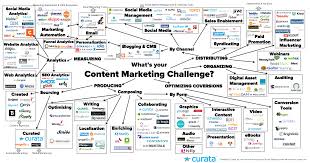Internet Marketing
3 Email Marketing Metrics That Can Help You With Marketing Strategy
July 25, 2015 by admin · Leave a Comment
Conducting extensive market research might suit large companies with big budget. But this won’t work for small businesses.
Yet there’s a simpler way to find data that you can use: the reporting dashboard in your email marketing system can reveal more.
Here are 3 metrics that can help you decide what to do with the ‘intelligence’ that you obtain:
1: Opens
This metric tells you whether or not your email was read fully and not just previewed. However, what this doesn’t tell you is what he’s going to do next. Apart from this, this ‘open’ metric gauges whether or not the message you sent was of good quality or not. It also serves as the foundation for A/B testing which sends two different messages to see which one got the best response.
A bounce means that the email could not be delivered. How this is useful is that it tells which email addresses on your list is valid or not so that you can remove them immediately. If there are too many bounces when you send emails, then it’s time to add a few new contacts to your list while eliminating others. Just remember that sometimes ISPs can penalize you for sending too many emails to nonexistent addresses.
3: Click-throughs
Among all these metrics, the click-throughs are the ones that you have to watch. This is because it holds evidence that the person who received this email actually read it and clicked on a particular call-to-action and to do whatever was requested. What click-through stats tell you is that the reader of the email is paying attention and now wants to know more.
Business Services
How a Bank Would Function Under Ideal Capitalism
July 8, 2015 by admin · Leave a Comment
The concept of ideal capitalism does not rely on altruism, faith or some idea that there is moral good in the generation of wealth. Pure capitalism is a philosophy that tries to take the intrinsic selfishness of humans, and harness that force into something that produces for the good of all. In this system, which exists only on paper in the purest form, a bank would function very differently from how it does today.
Starting a Bank
Anyone could start a bank for any reason, so long as he or she was able to raise the capital to do so. Banks are in the practice of wealth management, so it’s not hard to picture a financial consultant or accountant deciding to build on a career’s worth of knowledge by striking out on his own. He or she is free to loan to whoever is deemed worthy, probably based on credit scoring, and there are no restrictions stating otherwise.
In purely capitalist scenarios, this fictional bank would set interest rates based on staying competitive within the market. The rates could be whatever the market deemed, but could be based on many proprietary factors the lender uses. The lender is not bound by any particular terms and restrictions, so every deal can be customized to the borrower and lender’s intent. Thus, each transaction is truly mutually beneficial.
Failure
If this fictional bank uses poor lending standards to judge borrowers and their ability to repay, the bank may suffer financial difficulties when those borrowers default. In a purely capitalist society, there are no groups to bail out such an ailing business and it sinks.
Capitalism is guided by morality, as this example illustrates, but it’s the morality of self-preservation. Ignoring or circumventing that principle reduces the effectiveness of a capitalist system.


